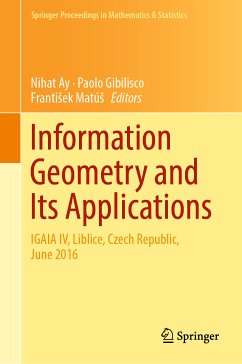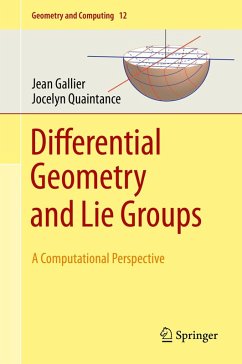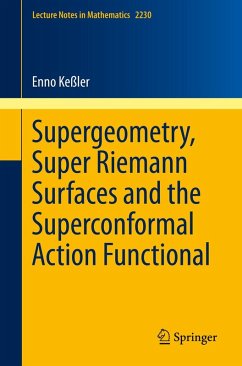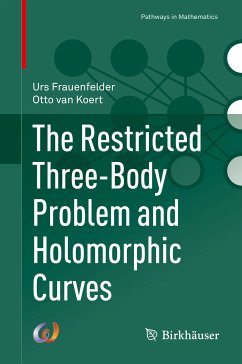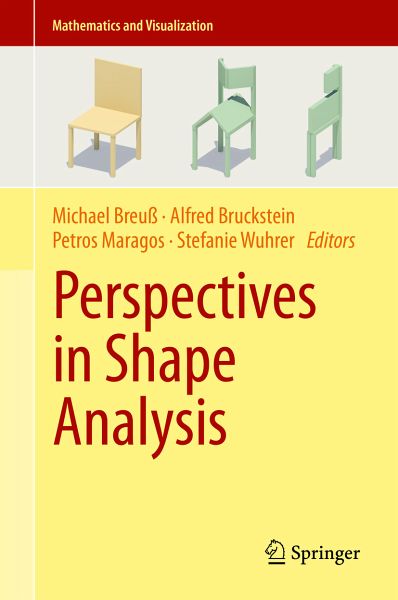
Perspectives in Shape Analysis (eBook, PDF)
Versandkostenfrei!
Sofort per Download lieferbar
112,95 €
inkl. MwSt.
Weitere Ausgaben:

PAYBACK Punkte
56 °P sammeln!
This book presents recent advances in the field of shape analysis. Written by experts in the fields of continuous-scale shape analysis, discrete shape analysis and sparsity, and numerical computing who hail from different communities, it provides a unique view of the topic from a broad range of perspectives.Over the last decade, it has become increasingly affordable to digitize shape information at high resolution. Yet analyzing and processing this data remains challenging because of the large amount of data involved, and because modern applications such as human-computer interaction require r...
This book presents recent advances in the field of shape analysis. Written by experts in the fields of continuous-scale shape analysis, discrete shape analysis and sparsity, and numerical computing who hail from different communities, it provides a unique view of the topic from a broad range of perspectives.
Over the last decade, it has become increasingly affordable to digitize shape information at high resolution. Yet analyzing and processing this data remains challenging because of the large amount of data involved, and because modern applications such as human-computer interaction require real-time processing. Meeting these challenges requires interdisciplinary approaches that combine concepts from a variety of research areas, including numerical computing, differential geometry, deformable shape modeling, sparse data representation, and machine learning. On the algorithmic side, many shape analysis tasks are modeled using partial differential equations, which can be solved using tools from the field of numerical computing. The fields of differential geometry and deformable shape modeling have recently begun to influence shape analysis methods. Furthermore, tools from the field of sparse representations, which aim to describe input data using a compressible representation with respect to a set of carefully selected basic elements, have the potential to significantly reduce the amount of data that needs to be processed in shape analysis tasks. The related field of machine learning offers similar potential.
The goal of the Dagstuhl Seminar on New Perspectives in Shape Analysis held in February 2014 was to address these challenges with the help of the latest tools related to geometric, algorithmic and numerical concepts and to bring together researchers at the forefront of shape analysis who can work together to identify open problems and novel solutions. The book resulting from this seminar will appeal to researchers in the field of shape analysis,image and vision, from those who want to become more familiar with the field, to experts interested in learning about the latest advances.¿
Over the last decade, it has become increasingly affordable to digitize shape information at high resolution. Yet analyzing and processing this data remains challenging because of the large amount of data involved, and because modern applications such as human-computer interaction require real-time processing. Meeting these challenges requires interdisciplinary approaches that combine concepts from a variety of research areas, including numerical computing, differential geometry, deformable shape modeling, sparse data representation, and machine learning. On the algorithmic side, many shape analysis tasks are modeled using partial differential equations, which can be solved using tools from the field of numerical computing. The fields of differential geometry and deformable shape modeling have recently begun to influence shape analysis methods. Furthermore, tools from the field of sparse representations, which aim to describe input data using a compressible representation with respect to a set of carefully selected basic elements, have the potential to significantly reduce the amount of data that needs to be processed in shape analysis tasks. The related field of machine learning offers similar potential.
The goal of the Dagstuhl Seminar on New Perspectives in Shape Analysis held in February 2014 was to address these challenges with the help of the latest tools related to geometric, algorithmic and numerical concepts and to bring together researchers at the forefront of shape analysis who can work together to identify open problems and novel solutions. The book resulting from this seminar will appeal to researchers in the field of shape analysis,image and vision, from those who want to become more familiar with the field, to experts interested in learning about the latest advances.¿
Dieser Download kann aus rechtlichen Gründen nur mit Rechnungsadresse in A, B, BG, CY, CZ, D, DK, EW, E, FIN, F, GR, HR, H, IRL, I, LT, L, LR, M, NL, PL, P, R, S, SLO, SK ausgeliefert werden.



